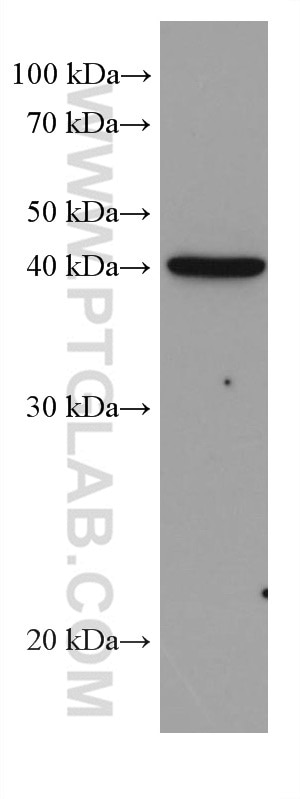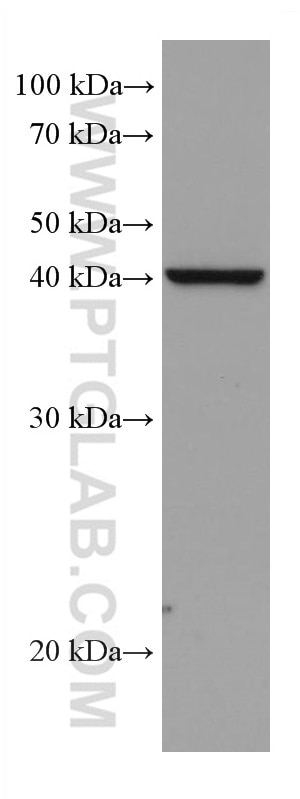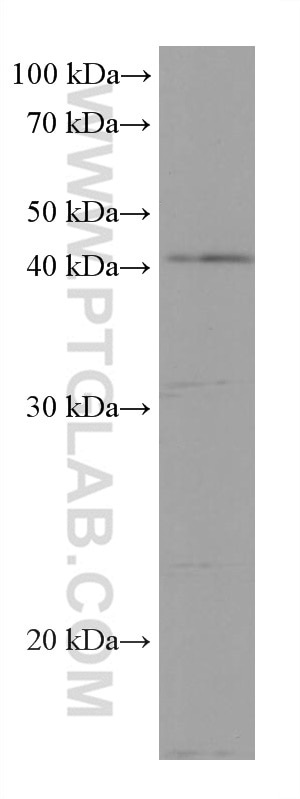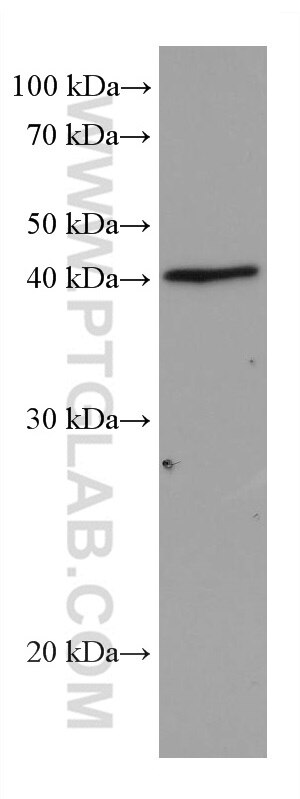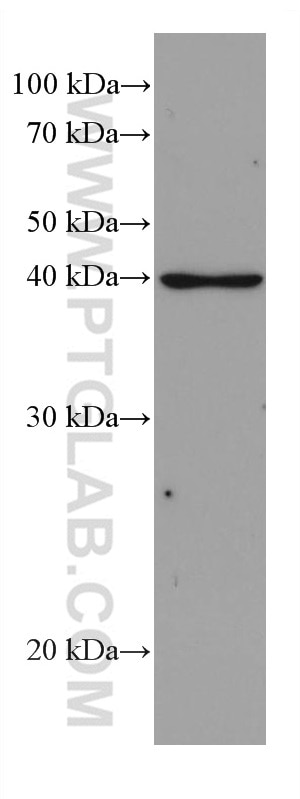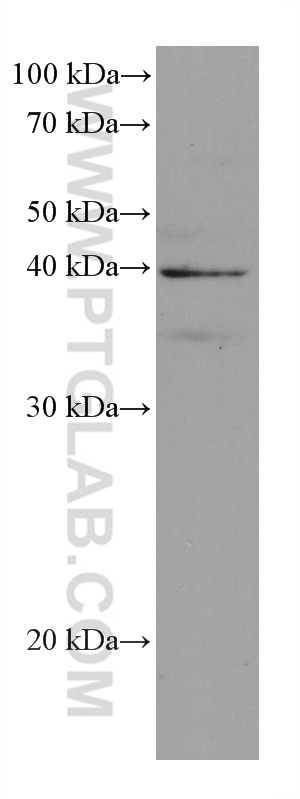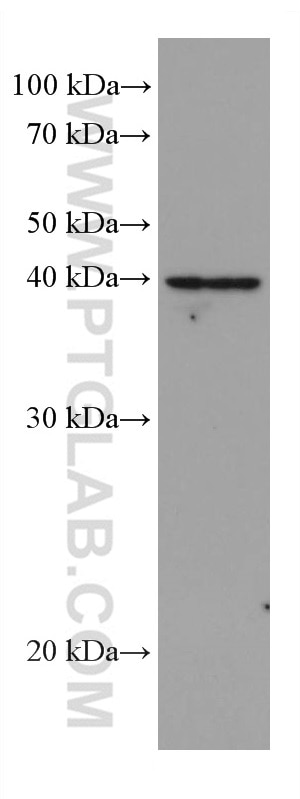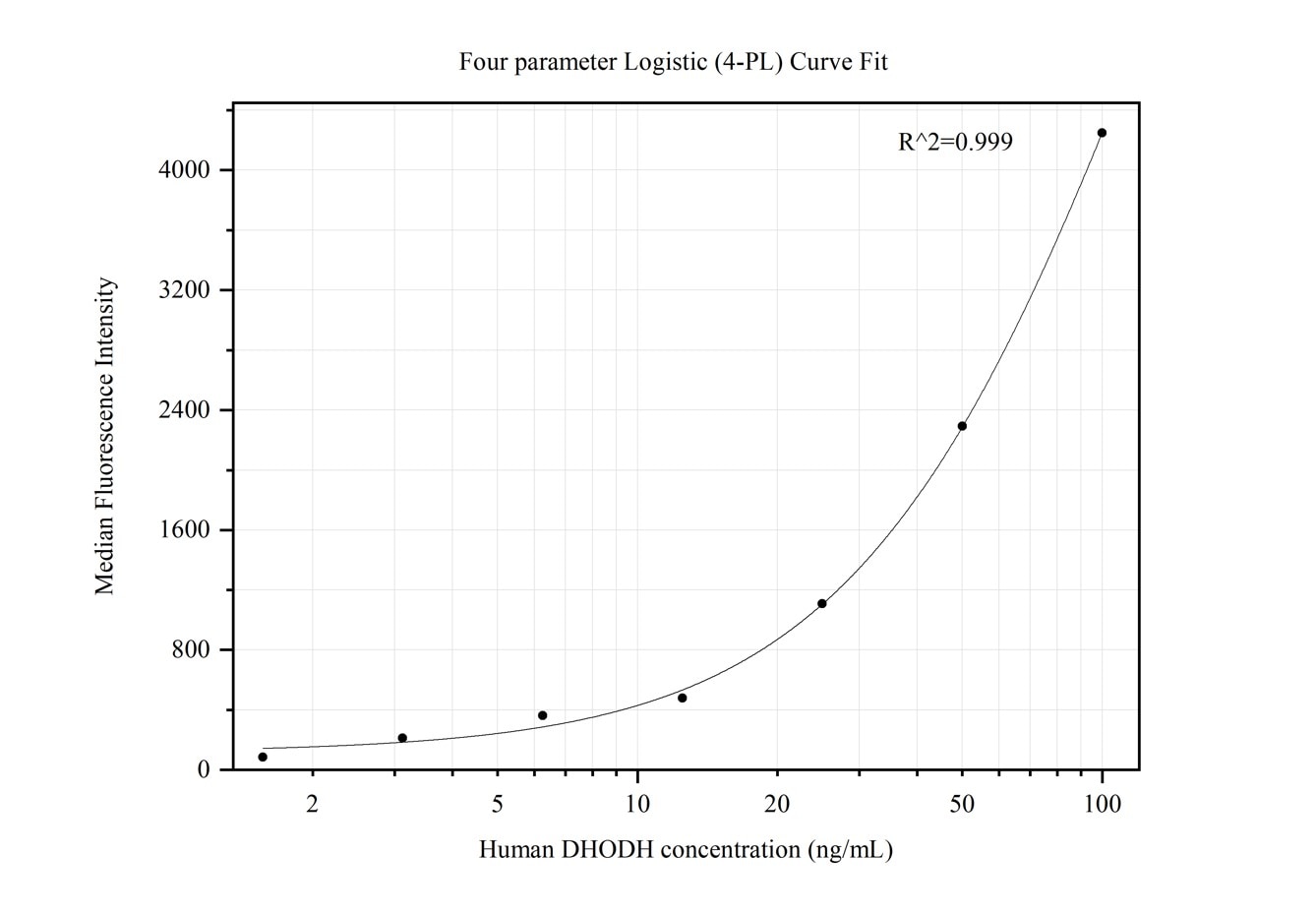Validation Data Gallery
Tested Applications
Recommended dilution
| Application | Dilution |
|---|---|
| It is recommended that this reagent should be titrated in each testing system to obtain optimal results. | |
Product Information
67977-1-PBS targets DHODH as part of a matched antibody pair:
MP50416-1: 67977-2-PBS capture and 67977-1-PBS detection (validated in Cytometric bead array)
Unconjugated mouse monoclonal antibody pair in PBS only (BSA and azide free) storage buffer at a concentration of 1 mg/mL, ready for conjugation.
This conjugation ready format makes antibodies ideal for use in many applications including: ELISAs, multiplex assays requiring matched pairs, mass cytometry, and multiplex imaging applications.Antibody use should be optimized by the end user for each application and assay.
| Tested Reactivity | human, mouse, rat |
| Host / Isotype | Mouse / IgG1 |
| Class | Monoclonal |
| Type | Antibody |
| Immunogen | DHODH fusion protein Ag6649 相同性解析による交差性が予測される生物種 |
| Full Name | dihydroorotate dehydrogenase |
| Calculated molecular weight | 43 kDa |
| Observed molecular weight | 43 kDa |
| GenBank accession number | BC065245 |
| Gene Symbol | DHODH |
| Gene ID (NCBI) | 1723 |
| RRID | AB_2918726 |
| Conjugate | Unconjugated |
| Form | Liquid |
| Purification Method | Protein G purification |
| UNIPROT ID | Q02127 |
| Storage Buffer | PBS only , pH 7.3 |
| Storage Conditions | Store at -80°C. |
Background Information
DHODH(Dihydroorotate dehydrogenase) catalyzes the fourth enzymatic step in de novo pyrimidine biosynthesis.DHO dehydrogenase is a monofunctional protein which, in most eukaryotic organisms, is located on the outer surface of the inner mitochondrial membrane.Defects in DHODH are the cause of postaxial acrofacial dysostosis (POADS).
